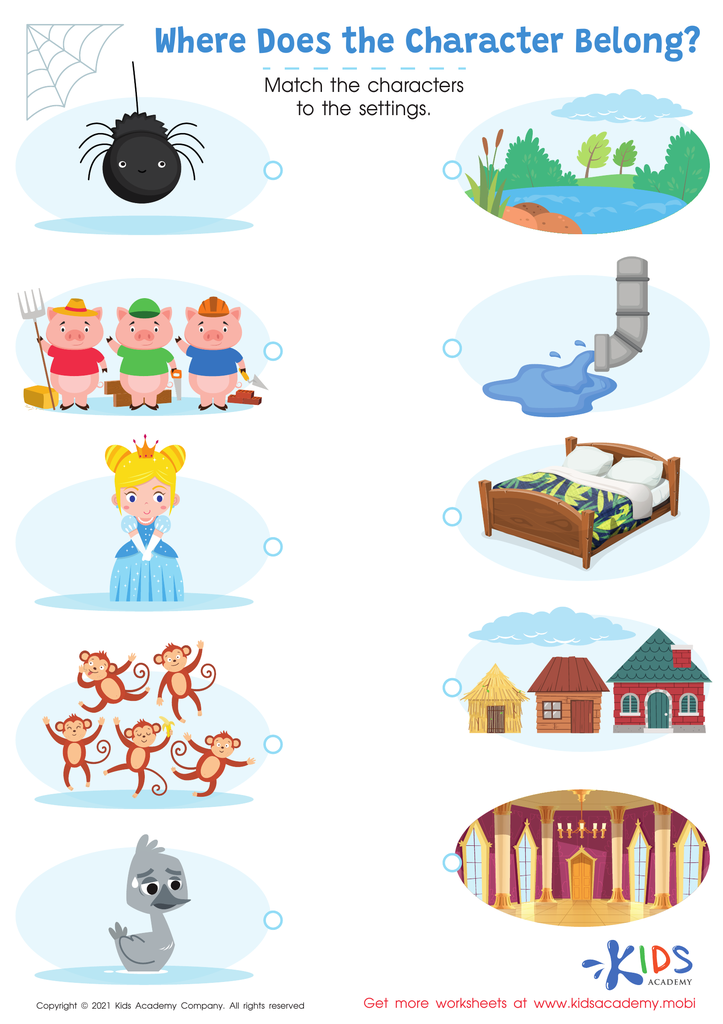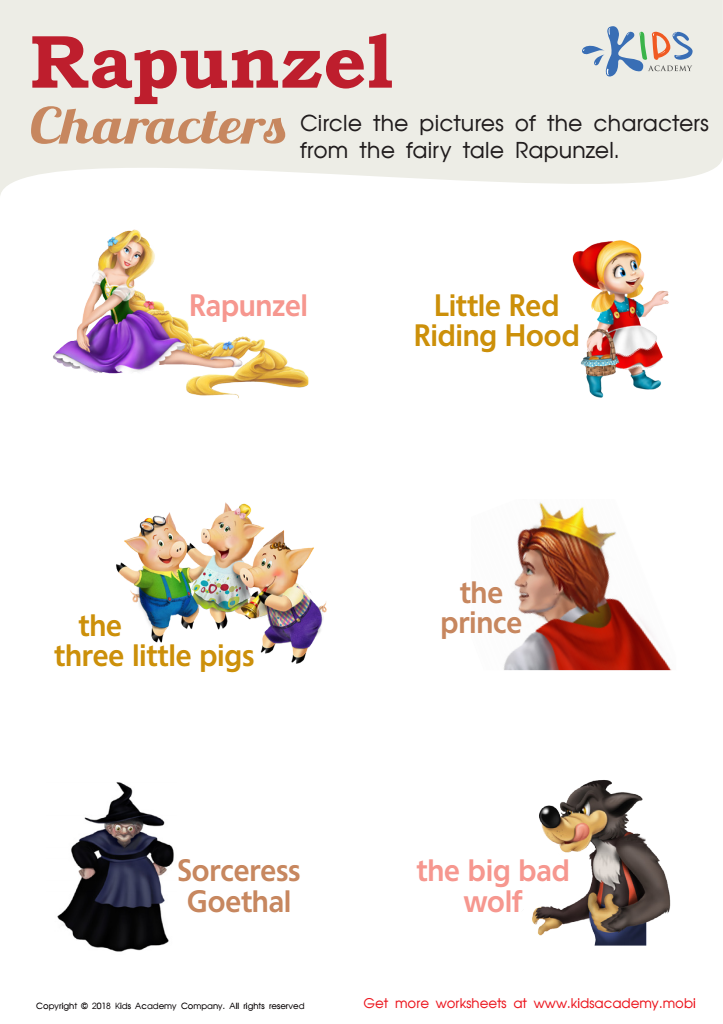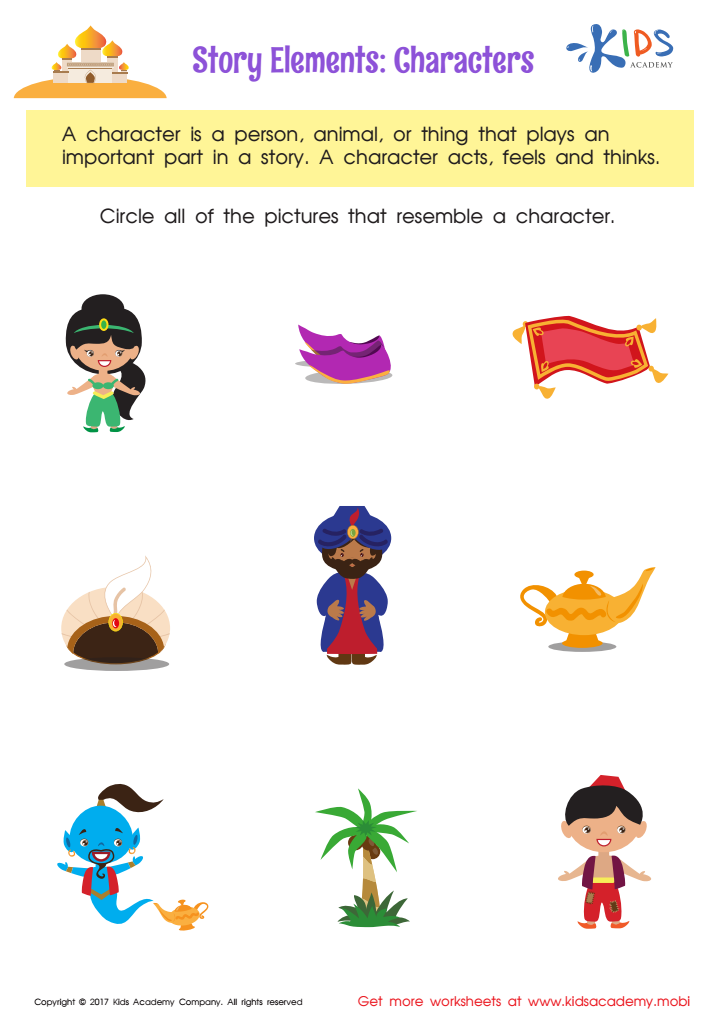Character recognition Reading Worksheets for Ages 4-7
3 filtered results
-
From - To
Unlock your child's reading potential with our engaging Character Recognition Reading Worksheets designed for ages 4-7. These fun, interactive worksheets help children identify and distinguish letters, words, and characters, building a solid foundation for their literacy skills. Each worksheet is thoughtfully crafted to enhance children's recognition abilities through colorful illustrations, playful activities, and age-appropriate exercises. Perfect for parents and teachers, these resources foster critical thinking and promote a love for reading. Encourage your young learners to explore the magical world of letters and words while developing essential early reading skills. Empower their journey to reading success today!


Where Does the Character Belong? Worksheet


Rapunzel Characters Worksheet


Story Elements Printable
Character recognition reading is a crucial component of early literacy development for children aged 4-7. At this stage, children are like sponges, absorbing all kinds of information, and recognizing letters and their associated sounds lays a solid foundation for reading proficiency. By becoming familiar with individual characters—both letters and common sight words—children can decode language, enhancing their ability to read and comprehend texts.
Parents and teachers should prioritize character recognition because it fosters a love for reading. Children who feel confident in their reading abilities are more likely to engage with books and literature, which enriches their vocabulary and imagination. Furthermore, strong character recognition skills can boost overall academic performance, laying the groundwork for success in later grades.
Moreover, learning to recognize characters helps with writing skills, allowing children to effectively express their ideas and creativity. It also plays a key role in developing critical thinking and problem-solving abilities, as kids learn to make connections between letters, sounds, and meanings. By supporting character recognition, parents and teachers can empower young learners, building today's readers and tomorrow's thinkers. Raising awareness about its importance ultimately enriches the educational experience and supports lifelong literacy skills.
 Assign to My Students
Assign to My Students




















